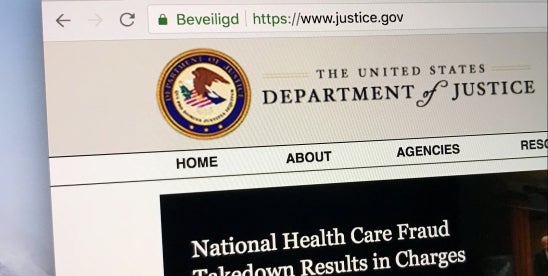Government Crackdown on Healthcare Fraud: DOJ Civil Division Lays Out Trump-Era Enforcement Priorities

Following a similar move by the Criminal Division, the Department of Justice's (DOJ) Civil Division has released a memo detailing its enforcement priorities, harking back to the policies of the Trump administration. This new memorandum, officially termed the “Civil Division Memo,” signals a renewed focus on combating healthcare fraud and abuse, a significant concern for taxpayers and the integrity of the healthcare system.
What's in the Memo?
The Civil Division Memo outlines several key areas of focus. While the specifics are nuanced, the overarching theme is a commitment to vigorously pursuing cases involving false claims, kickbacks, and other schemes designed to defraud government healthcare programs like Medicare and Medicaid. The memo emphasizes a data-driven approach, utilizing advanced analytics to identify potential fraud hotspots and target high-risk providers and businesses.
Key Priorities Highlighted Include:
- False Claims Act Enforcement: A continued and aggressive prosecution of individuals and entities submitting false or fraudulent claims to government healthcare programs. This includes scrutinizing billing practices, medical necessity, and documentation.
- Kickback Schemes: Targeting arrangements where healthcare providers receive payments or incentives for referring patients or prescribing specific services – a significant driver of unnecessary and costly medical procedures.
- Healthcare Compliance Programs: Increased emphasis on evaluating and enforcing the effectiveness of healthcare providers' compliance programs. Companies with robust compliance programs are viewed more favorably, while those lacking adequate safeguards face heightened scrutiny.
- Data Analytics & Technology: Leveraging data analytics and technology to identify patterns of fraud, track suspicious activity, and enhance investigative capabilities. This reflects a modern approach to combating increasingly sophisticated fraud schemes.
- Qui Tam Actions (Whistleblower Cases): Continued support for and prosecution of qui tam actions, where private citizens (whistleblowers) bring lawsuits on behalf of the government, sharing in any recovery.
Why Does This Matter?
Healthcare fraud costs the United States billions of dollars annually, driving up costs for everyone. This memo signifies a renewed commitment from the DOJ to protect taxpayer dollars and ensure the integrity of the healthcare system. The emphasis on data-driven approaches and compliance programs suggests a shift towards proactive prevention and targeted enforcement.
Looking Ahead: Implications for Healthcare Providers
Healthcare providers and organizations should take note of this renewed focus. This memo serves as a reminder of the importance of robust compliance programs, accurate billing practices, and ethical conduct. Increased scrutiny is likely, and those failing to adhere to the law face significant financial penalties and reputational damage. Consulting with legal counsel specializing in healthcare compliance is strongly advised.
The Civil Division Memo builds upon the foundation laid by the Criminal Division’s enforcement priorities, signaling a coordinated government effort to combat healthcare fraud and protect the interests of American taxpayers. The implications for the healthcare industry are clear: compliance is not optional; it’s essential.






